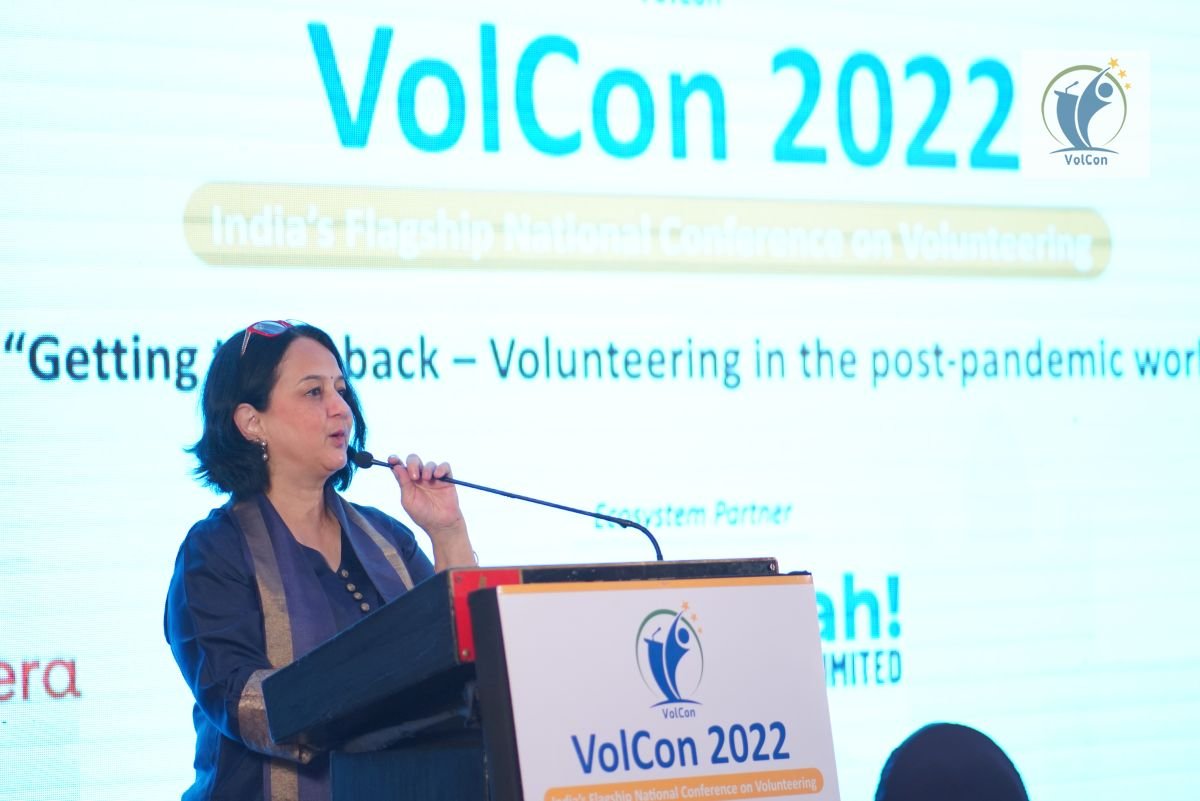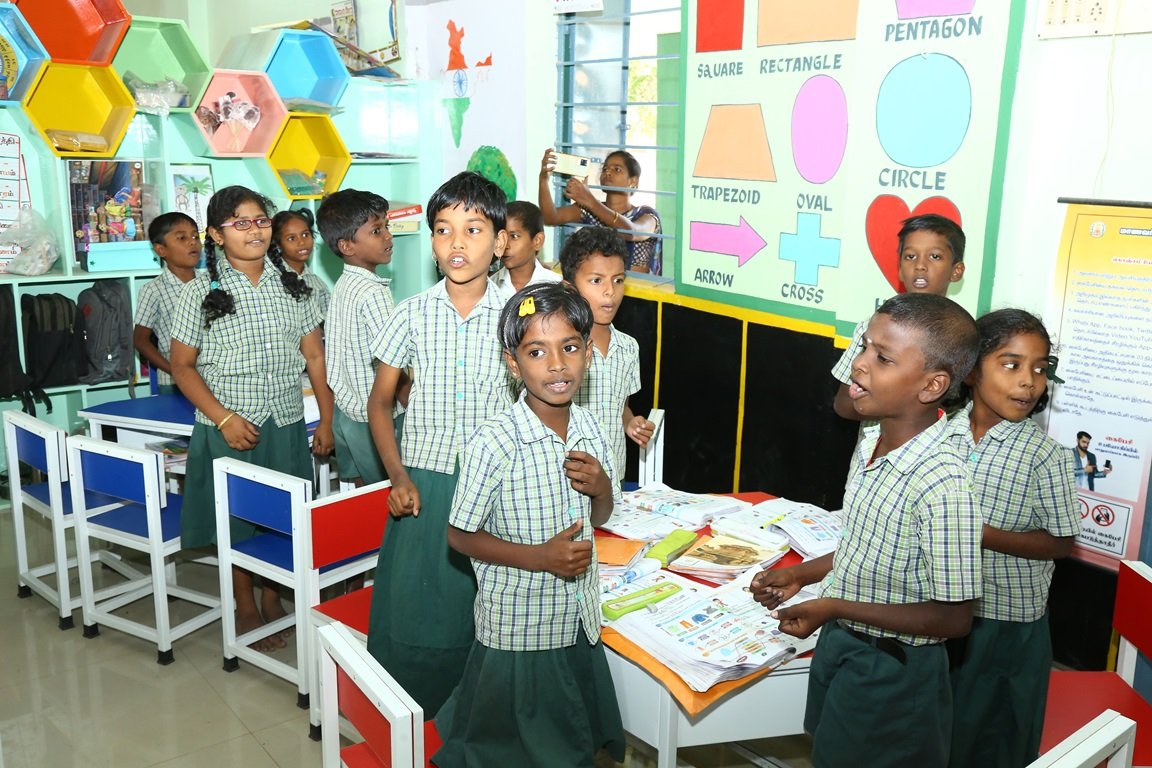INITIATIVES
SBI’s commitment to improve lives of underprivileged
CSR at SBI aims to integrate economic, environmental and social objectives with organization’s operations and growth aligning it with national priorities for social development.
State Bank of India (SBI) is India’s largest bank in public or private sector space with footprints not only across India but also at major commercial hubs of the world. SBI is a diversified financial conglomerate with interest in corporate banking, retail banking, international banking, investment banking, government business, and treasury operations. SBI also has stake in life insurance, general insurance, mutual funds, credit card and merchant acquiring business through its subsidiaries. Being the bank of choice for a transforming India, SBI has been pioneering in corporate social responsibility (CSR) in the Indian banking ecosystem.
The concept of CSR was introduced in the bank as early as 1973, under the name ‘Innovative Banking’ with emphasis on assisting groups belonging to the weaker and downtrodden sections of the society by providing avenues for improvement of their economic condition. As the scope of activities increased, the bank classified these activities as Community Services Banking. CSR at SBI aims to integrate economic, environmental and social objectives with organization’s operations and growth aligning it with national priorities for social development. CSR is not merely compliance; it is a commitment to support initiatives that measurably improve the lives of underprivileged by addressing their needs with ensuring environmental sustainability and ecological balance. SBI Foundation in 2015 as a Section 8 company under Companies Act of 2013 to undertake CSR activities on behalf of SBI and its subsidiaries in a planned and focused manner.
SBI through SBI Foundation undertook CSR activities in the following thematic areas:
HEALTHCARE
To contribute positively to United Nation’s Sustainable Development Goal (SDG) #3: Good Health and Well Being by bringing about positive changes in the lives of underprivileged sections of society by providing them with free access to quality healthcare, the bank has continued to support the following CSR projects through SBI Foundation.
- Gift Hope, Gift Life – Augmenting Deceased Organ Donation
Programme in India.
In India, it is estimated that 5,00,000 people need kidney, liver and heart transplants, against which we do only around 8,000 transplants. India at 0.50 pmp (per million population) donation rate is nowhere on the world map as compared to other countries like Spain at 35.1 pmp, Croatia at 35 pmp and UK at 20.8 pmp respectively.
Project Gift Hope, Gift Life is initiated in partnership with Mohan Foundation with an aim to address problems like lack of awareness about organ donation, lack of readiness of medical fraternity in dealing with cases of brain death and organ harvesting, etc. and to create an enabling environment for deceased organ donation in India by:
- Running a 24×7 toll-free national helpline.
- Training healthcare professionals (doctors, nurses, surgeons, intensivists, etc.)
- Initiating the organ donation programme in new states.
- Conducting massive awareness programmes to sensitize the masses.
Project Gift Hope, Gift Life has made a positive impact by training and building the capacity of 1,025 healthcare professionals all across India who in turn have saved more than 421 lives. For sensitizing the public, 697 ‘Angels of Change’volunteers are trained. Through the toll-free national helpline, 6,185 calls were attended and 13 lives have been saved. For spreading massive awareness about organ donation, the iconic Chhatrapati Shivaji Maharaj Terminus (CSMT) in Mumbai was lit green on November 27, 2018, which is observed as India’s National Organ Donation Day. An online one-year e-learning course for transplant coordinators is designed and made available to healthcare professionals.
- Umeed
In India, it is estimated that 44,000 women die annually due to preventable pregnancy- related causes and under-five child mortality is 40 in 1,000 live births. Project Umeed is an initiative in partnership with ARMMAN in Mewat, Haryana, to provide free preventive healthcare information to expectant mothers and women with newborn children to reduce maternal and infant mortality and morbidity rate. The project uses mMitra (a free mobile voice call service), for providing timed and targeted preventive care information weekly/biweekly directly to the phones of the enrolled women in their chosen language and time slot.
Project Umeed has empowered 14,085 expectant mothers and new mothers to make healthy decisions and to give their babies the best start to life. It has reduced maternal and infant mortality and morbidity rate among 14,085 mothers and as many children by providing crucial preventive care information. There has been an increase in women consuming ironfolic acid tablets, number of antenatal visits to health centres, consumption of nutritious food and understanding of the need for testing for HIV/AIDS.
EDUCATION
Education is one of the most powerful and proven vehicles to bring transformational change in the development landscape. Education plays a vital role in improving the standard of life of an individual and is viewed as an effective tool for bringing socio-economic changes. To contribute positively to United Nation’s SDG Goal #4: Quality Education through SBI Foundation, the bank has initiated various projects which are mentioned below:
- Bodhshalas
Project Bodhshala was initiated to demonstrate quality learning outcomes of the students from marginalized backgrounds, studying in Grades I to V, by practice of quality curriculum, classroom practices and assessments. Two Bodhshalas were supported in Nagtalai and Gokulpuri slum areas of Jaipur, Rajasthan in partnership with Bodh Shiksha Samitis. Project Bodhshala has provided quality education to 450 children. Educational Quality Foundation of India was engaged for an external impact assessment and the findings shows an increase of enrolment rate in the Bodhshalas by five per cent compared to last year. In Grade III, Hindi learning levels have increased significantly from mean score of 48 per cent at baseline to 80 per cent at end line assessments by a third party. Maths mean scores increased from 72 per cent at baseline to 74 per cent at end line assessments. In Grade V, Hindi mean scores increased from 56.5 per cent at baseline to 85 per cent at end line assessments. In Grade V, Maths mean scores increased from 57.8 per cent at baseline to 73 per cent at end line assessments.
- Peepul Model School
Project Peepul is initiated in partnership with Absolute Return for Kids (ARK) in Delhi to raise the standard of education and improve the learning levels in government schools by establishing a success story of running a government school in public-private-partnership. SBIF supported the Peepul Lajpat Nagar School, which
is a model primary school in Delhi, having received the Best School Award from the South Delhi Municipal Corporation Peepul Lajpat Nagar School provided high quality education to 412 children. The student enrolment was at 95 per cent of the capacity of the school. The attendance stood at 76 per cent which was higher as compared to average attendance of 65 per cent in government schools. At least 84 per cent students were retained from last academic year. In the parentsteachers meeting, 92 per cent of the parents regularly attended the meeting which shows their commitment to the school. In internal assessments, 87 per cent students were ranked in average and above average category in terms of learning levels.
- Gyanshala
Project Gyanshala is implemented in partnership with Education Support Organization to further the common goal of providing quality education. The project is implemented in the slums of Ahmedabad to support high quality education of 2,150 slum children from IV to VIII Grades. The attendance of students was 73 per cent during the academic year and on comparing ASSET average scores and Gyanshala ASSET average scores, the performance of Gyanshala students is within half sigma, indicating statistical parity, between Gyanshala and ASSET average scores for both maths and science.
- SBI Udaan
Project SBI Udaan aims at mitigating dropout rates in slum area of Chetla by providing indispensable requirements for quality education to 40 students in Kolkata. The project will give an opportunity to students living in slum communities to further their career by getting enrolled in this programme and getting enormous exposure to an environment that keeps students engaged in various learning activities practically. This will enhance
their skills, help them to explore their interest area and at the same time help the children to comprehend the importance of attending school and motivate them to continue with further education.
ENVIRONMENT AND SUSTAINABILITY
SBI is committed to protecting the environment and to reduce its carbon footprints. Responsible interaction with the environment to avoid depletion and degeneration of natural resources and maintain long-term quality of the environment is a priority for SBI.
- Protect Himalayas
In the year 2016, a wildfire devastated the flora and fauna in the Himalayan region of Uttarakhand. Thus, a need wasfelt to restore the ecological balance in the region by planting more trees. Protect Himalayas is implemented in partnership with Sankalptaru Foundation in Pokhri Tehsil in Chamoli, Uttarakhand. The project is aimed to execute an afforestation activity to compensate for recent forest fire in the Himalayan region. A total of 13,596 trees were planted. As three per cent mortality was observed, to compensate this loss 396 trees were planted. The current number of surviving trees recorded as on August 29, 2018, is of 13,200 trees which are being regularly fostered and monitored. Local villagers and school students have also been mobilized towards their responsibility of preserving the Himalayan environment. Thus, all the natives are actively nurturing the trees in their vicinity.
- SBI Corbett Project
SBI Corbett Project in collaboration with Waste Warriors is closely working on providing solid waste management system in villages where SHG (self-help group) women under this project have been employed for door-to-door waste collection, segregate waste, sort them and send remaining waste to scarp dealers for recycling. Villagers have been given bags for segregating dry waste and compost pits have been made to create manure out of their food and kitchen waste that can be used for various agricultural purposes.
- SBI Green Marathon
SBI Green Marathon support was started in the year 2017. For the first season the event was conducted in six cities which was later scaled up to 15 big cities having our LHOs in FY 2018-19. With exponential increase in the fitness and sporting culture of the country, such an event fits well in the overall context of the bank’s initiatives in the sustainability space for promotion of message of conservation of environment. The run is categorized in three heads—5 km, 10 km and 21 km. In line with the theme of green run, all the participants are being provided with Tshirts made from organic material, cloth bags, plantable bibs and medals made from recycled materials.
SBI YOUTH FOR INDIA FELLOWSHIP
Enabling Platform for Urban Youth to find Solutions for Rural Communities To address the urban-rural divide in terms of human needs, participation of educated urban youth was felt necessary. SBI Youth for India (YFI) Fellowship provides a platform to the urban youth to understand the gaps and come up with innovative solutions to fill the gaps by leveraging their academic knowledge and professional work experience. The fellowship seeks to help India secure an equitable and sustainable growth path by:
- Providing educated Indian youth with an opportunity to touch lives and create positive change at the grassroots level in rural India.
- Providing NGOs working on development projects in rural India with educated manpower whose skill sets
can be used to catalyze rural development.
- Promoting a forum for the YFI Alumni to share ideas and contribute to rural development throughout their professional life. The fellowship commenced in the year 2011-12 with 27 fellows successfully completing the fellowship. Over the years, YFI has created 303 change agents in last six batches whose intervention with innovative ideas has benefitted the rural community in health, sanitation, education, women empowerment, livelihood, alternate energy, local governance, etc. The core vision of the SBI Youth for India Fellowship is to provide an opportunity and ensure sustainability of the innovations. The possible ways in which the sustainability of the projects is assured are as follows:
- NGO takes up the intervention or the model developed by the fellow during the 13-month period and is improvized to replicate in various other villages.
- Some of the fellows are absorbed by the NGO since they are associated with the project and they continueworking on the same project.
- Some of the new fellows who join the fellowship take up the project completed by the fellows from earlier batch and take it to the next level. This is encouraged as many projects take more than 13 months to achieve the desired results.
- Based on the need of the community, certain projects need to be scaled-up. Such project proposals are submitted by the partner NGOs to SBI Foundation for funding the projects.




































